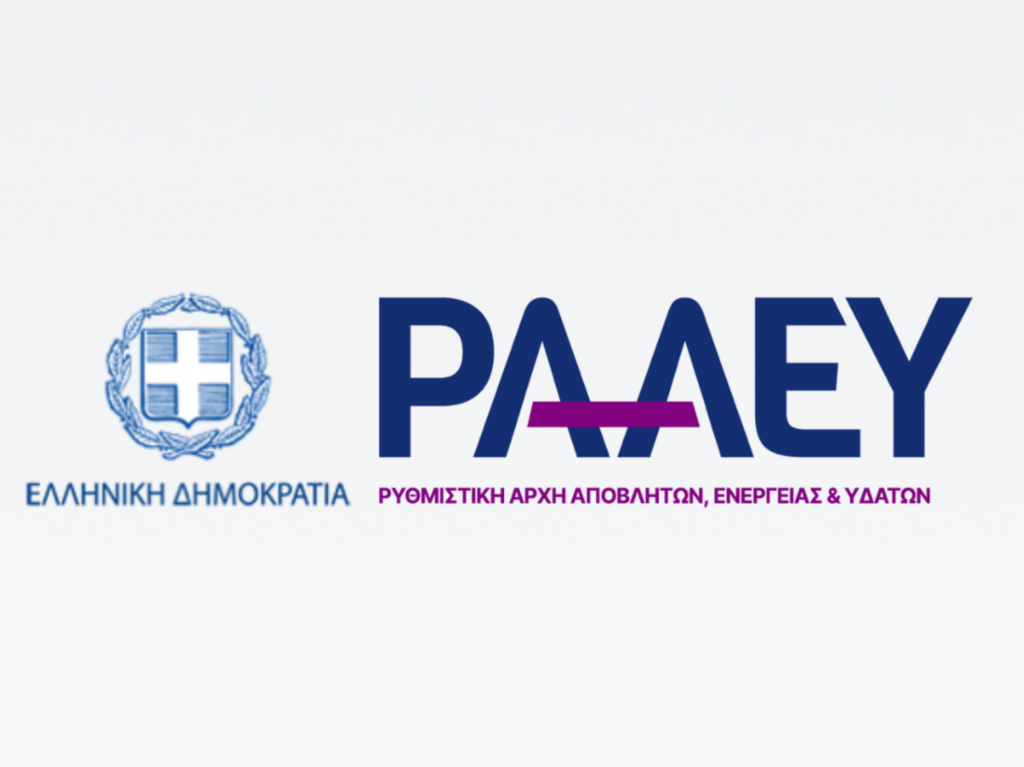Introduction
The Energy Regulatory Authority (RAE) is an independent regulatory authority, which was established by Law 2773/1999,, in the context of harmonization with Directives 2003/54/ΕΚ and 2003/55/ΕΚ on electricity and natural gas, with main its competence to supervise the domestic energy market, in all its sectors, recommending to the competent State bodies and taking measures itself to achieve the goal of the liberalization of the electricity and natural gas markets.

Εισαγωγή

Η Ρυθμιστική Αρχή Ενέργειας (ΡΑΕ) είναι ανεξάρτητη ρυθμιστική αρχή, η οποία συστήθηκε με το ν.2773/1999, στο πλαίσιο εναρμόνισης με τις Οδηγίες 2003/54/ΕΚ και 2003/55/ΕΚ για τον ηλεκτρισμό και το φυσικό αέριο, με κύρια αρμοδιότητά της να εποπτεύει την εγχώρια αγορά ενέργειας, σε όλους τους τομείς της, εισηγούμενη προς τους αρμόδιους φορείς της Πολιτείας και λαμβάνοντας η ίδια μέτρα για την επίτευξη του στόχου της απελευθέρωσης των αγορών ηλεκτρικής ενέργειας και φυσικού αερίου.
Law 2773/1999, and subsequent amendments granted RAE mainly advisory responsibilities to monitor and control the energy market in sectors such as electricity production from conventional fuels, renewable energy sources, natural gas, and petroleum products.
Law 3851/2010 introduced significant changes to the legal regime governing renewable energy sources and RAE’s competences. These changes include the licensing procedure for renewable energy plants and the evaluation process for production license applications.
RAE now plays a decisive role in various areas, including granting generation licenses, monitoring and supervising the energy market, monitoring electricity supply, transmission, and security, protecting the energy supply industry, supervising Independent Transmission Operators, approving tariffs for non-competitive activities, granting exemptions from third party access obligations, monitoring energy interconnections, and adopting regulatory measures for the proper functioning of energy markets.
Since 2011, RAE’s role as a national energy regulator has been upgraded, with increased powers to regulate the electricity and gas markets, as mandated by the Third European Energy Package. National energy regulators serve as “guarantors” of the proper functioning of energy markets.
Law 5037 (Government Gazette A 78/29.3.2023) renamed the Regulatory Authority for Energy (RAE) to Regulatory Authority for Waste, Energy and Water (RAEWW) and expanded its scope with responsibilities over water services and municipal waste management. In this regard, the responsibilities of the Regulatory Authority for Waste, Energy and Water are updated and configured so that the control, regulation and supervision of the energy market, as well as the control, regulation and supervision of issues related to the provision of water services and municipal waste management, without prejudice to the responsibilities of the Minister of Environment and Energy, be exercised by the Regulatory Authority for Waste, Energy and Water, which is the national regulatory authority for electricity and gas, water services and municipal waste management, within the meaning of Directives (EU) 2019/944 and 2009/73/EC and laws 3199/2003 (A’ 280) and 4819/2021 (A’ 129).
For more information on the European regulatory framework and the role of the Energy Regulatory Authority, please visit: RAE.



